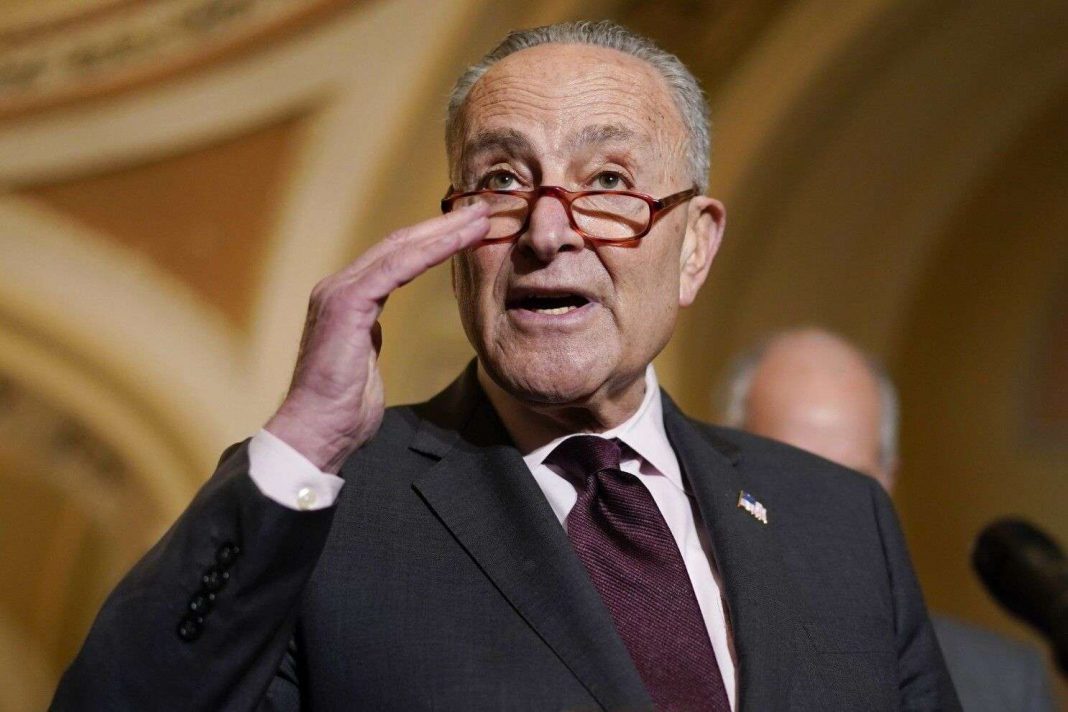Despite virtually overwhelming Republican opposition, Congress granted final passage to legislation that will extend the nation’s debt limit by $2.5 trillion early Wednesday, putting off the possibility of the country’s first-ever default until at least early 2023.
On Tuesday afternoon, Democrats came together in favour of the bill, which passed the Senate 50 to 49 along party lines and then passed the House 221 to 209 soon after midnight on Wednesday. Republicans opposed the bill, which passed the Senate 50 to 49 along party lines. Republicans voted overwhelmingly against the proposal, with just one member of the House of Representatives, Representative Adam Kinzinger of Illinois, voting in favour. The law is now on its way to President Biden, who is anticipated to sign it as soon as possible.
After a week of negotiations, party leaders reached an agreement to create a one-time fast track mechanism to raise the debt limit with a simple majority vote, rather than the 60 votes required to get most legislation through the Senate.
The votes were held with little time left before the possibility of a default, which would be devastating for the national economy, loomed large. In advance of Wednesday’s deadline, the Treasury Department had warned that it would be unable to pay the nation’s obligations, and the department is presently using so-called “extraordinary measures,” which are a set of budgetary procedures designed to postpone the prospect of a default.
Senate Majority Leader Chuck Schumer of New York said on Tuesday that the $2.5 trillion figure would be sufficient to push the threat of a default past next year’s midterm elections, an assessment shared by the Treasury Department, according to a person familiar with the department’s internal estimates. The debt ceiling, which includes debt accrued by governments from both political parties, is now set at $28.9 trillion, which is the highest level in history.
Despite their opposition to the debt limit rise, a small number of Republicans voted last week to establish an accelerated debt limit procedure, thereby putting an end to their party’s months-long blockage of debt limit legislation. Using the filibuster, Republicans have spent months preventing Democrats from passing long-term legislation to raise the debt limit, effectively stalling any movement.
Democrats hope that addressing the debt ceiling will give them more time to concentrate on getting their signature $2.2 trillion social safety net, climate, and tax package passed through the Senate before Christmas, despite the fact that some senators have expressed concern that such a timeline may not be feasible.
But even as they considered other legislative initiatives, some Democrats argued that the machinations to raise the debt ceiling demonstrated why Congress should abolish the process altogether, rather than repeatedly bringing the country to the brink of potentially catastrophic fiscal cliffs, only to set the stage for new ones in the future.
Other Democrats said that the intricate workaround was further more proof that the filibuster should be abolished in its entirety, or that similar exceptions should be given for other Democratic objectives.
However, establishing such a procedure would need the backing of at least ten Republicans, and so far only one Republican has shown an interest in joining Democrats in favour of a voting rights proposal. Republicans, on the other hand, voted with Democrats last week to enable the Senate to take up a plan that would allow the debt ceiling to be lifted with a simple majority vote.
On Tuesday, Republicans were keen to get Democratic support for the tax hike on the record, and they were successful. Republicans might point to similar votes in the future if they want to attack Democrats for spending too much money and adding to the national debt, for example.
However, in a floor address on Tuesday, Mr. McConnell made no mention of the agreement he reached with Mr. Schumer to enable the debt limit to be lifted, but he did indicate that the debt ceiling would be raised only with Democratic votes in the Senate if the debt ceiling was raised. He also slammed President Biden’s social safety net, climate change, and tax reform proposals, saying that they will worsen inflation and lead to the amassing of even greater amounts of debt.
During a series of remarks over the weekend, former President Donald J. Trump slammed Senate Majority Leader Mitch McConnell, alleging that the senator “lacked the courage to play the debt limit card, which would have given the Republicans a perfect win on practically everything.”
Mr. Trump has continued to call on Republican leaders to remove Mr. McConnell from his role as majority whip.
Earlier this week, Kelly Tshibaka, a hard-line conservative running against Senator Lisa Murkowski, a Republican from Alaska, said that if she were elected in 2022, she would not back Mr. McConnell because of his involvement in the debt limit debate.

